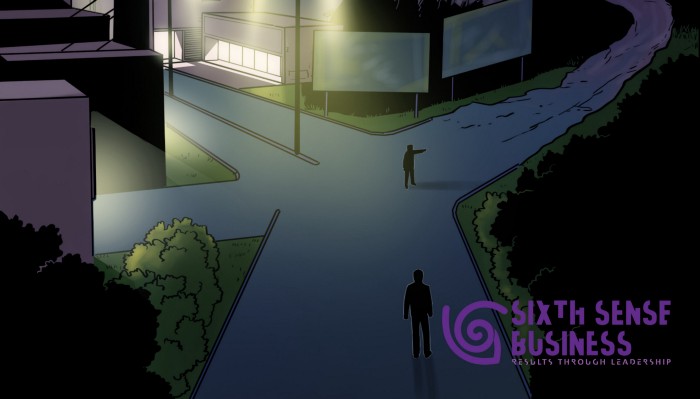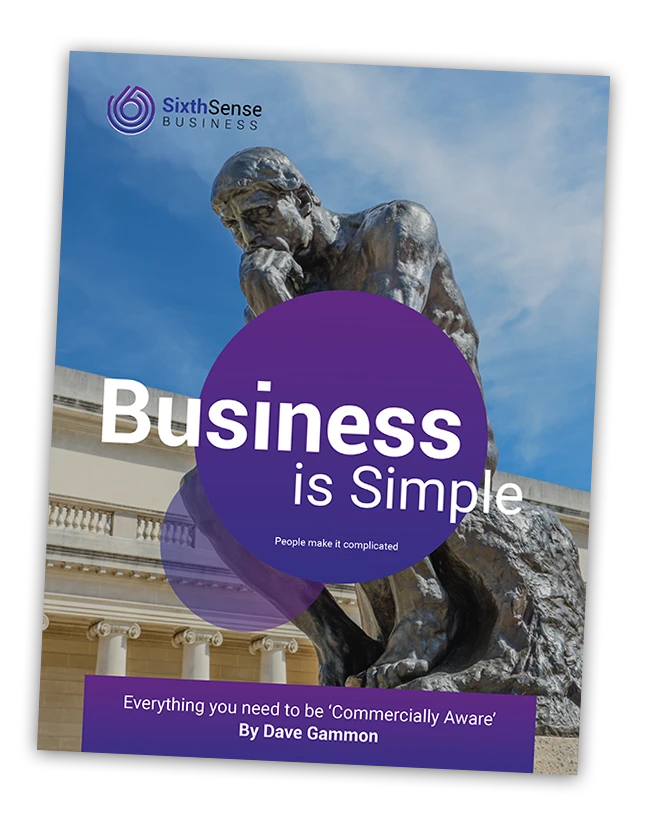
One of my clients is considering automation, a big decision as there are many options and a significant capital commitment involved. If that isn’t enough of a challenge, then the fact that the technology involved is evolving and changing at lightning speed is.
So, what solution do you go for? When do you commit?
For me, the most exciting thing about positions of leadership is decision-making. Helping people develop the skills and understanding to make consistently high-quality decisions (even under time and resource pressure) is one of the critical areas of focus in my Business and Leadership development programs.
Even the simplest of decisions can seem complex, time-pressured and loaded with uncertainty.
Simple principles that can help sharpen commercial decision-making.
- There’s no such thing as common sense.
It is a widely shared idea that most people make decisions primarily from an emotional rather than a rational position (and even if they do research, they only use it to justify their emotional decision). I don’t think this idea of duality is beneficial as both emotional and rational positions come from the same single human nervous system. Our ‘gut feel’ and emotions are simply reactions to what we perceive around us, and they are valid data points in our decision making, as is our ‘rational’ thought.
We make decisions by perceiving what is going on, thinking up what a good outcome looks like and what our choices might mean in terms of how we look to others. The problem is every one of us does this by reference to a uniquely constructed model of the world held in our brains.
This is why different individuals often come to other decisions and choices in what appears to be the same situation. Even the same individual will reach a different conclusion about the same situation at another point in time.
To presume that ‘common sense’ operates in decision-making ignores this and opens ourselves up to flawed decisions and disagreements.
- There is no correct answer in commercial decisions.
Commercial decisions typically involve trade-offs between three things: the company’s product/market position, the experience of its customers and company profitability.
On a day-to-day level, this is about reconciling quality, service and margin. Customer’s expectations, cost structures and the ever-evolving marketplace create a shifting landscape that makes the perfect decision elusive.
There is no right and wrong, only optimal or sub-optimal when the decision is taken. Any decision triggers a chain of cause and effect that means the outcome may be better or worse than before we took the decision.
- Good commercial decisions are about trajectory, risk and timing.
One of the most heavily used quotations in my armoury is from Verne Harnish; “more businesses choke on opportunities than starve of them.”
There will always be more good commercial options and choices out there than the capital, people, energy and time required to execute and integrate them. Capacity to change is the single most significant constraining factor in every business.
Prioritisation is a crucial practice for Leaders to master.
I often use a tool called the idea car park to help my clients navigate this challenge.
Ultimately selecting what ideas to keep and what to leave in the car park requires both rational and emotional assessment based on three simple litmus tests:
· Will this decision contribute speed or effectiveness in achieving our desired business outcome?
· Is the level of unmanageable risk (either from the decision not working or working and having unintended consequences) within our tolerance?
· Is this action one that needs to be taken now; relative to other opportunities present?
Whilst logic has a role in answering these three questions; the answers lie in our ability to blend rationality with ‘gut feel’. The better we understand and can calibrate, the better anyone can become at making well-optimised decisions.
